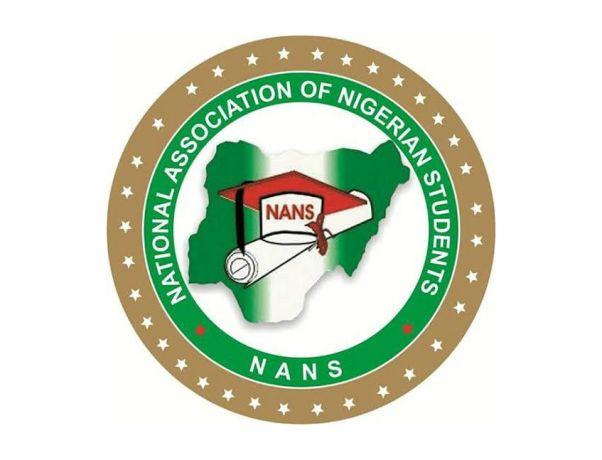A Federal High Court in Lagos State has barred the Federal Government from blocking SIM cards not linked to National Identity Numbers next month.
The Ministry of Communications and Digital Economy had, through the Nigerian Communications Commission, asked operators to block all SIM cards not linked to NIN by April 6, 2021.
The deadline had caused many Nigerians to gather at offices of the National Identity Management Commission in disregard of COVID-19 protocols.
However, a former second National Vice-President of the Nigerian Bar Association and human rights lawyer, Mr Monday Ubani, filed an originating motion and asked the court to stop the Nigerian Communications Commission from disconnecting all SIM Cards not linked to NINs.
The first to fourth defendants in the suit are the Federal Government, Attorney General of the Federation, the NCC and the Minister of Communication and Digital Economy.
Ubani sought four reliefs including an order that the two-week ultimatum was inadequate and would not only cause him hardship but would also infringe on his fundamental right to freedom of speech and right to own property as provided under sections 39(1) and 44(1) of the Constitution of the Federal Republic of Nigeria, 1999 (as amended).
He also sought an order of the court extending the deadline.
Delivering judgment on March 23, 2021, Justice M.A Onyetenu, ordered that the deadline be extended by two months from the day of the judgement.
The court ruled that the ultimatum of April 6, 2021, be halted as the timeline is grossly inadequate and will not only work severe hardship, but will likely infringe on the fundamental rights of Nigerians to freedom of expression as guaranteed by Section 39(1)(2) and Section 44(1) of the 1999 Constitution.
The judge further declared that in view of the COVID-19 pandemic and the rising cases in Nigeria presently, the deadline given to over 200 million Nigerians to register their SIM cards with NIN, will lead to a rush, thereby resulting in clustering of Nigerian citizens in a NIN registration centre, subjecting them to the possibility of easily contracting COVID-19.
The judgment read in part, “I therefore make the following orders: An order halting the deadline ultimatum of 9/4/21 given by the 1st (Federal Government) 3rd (NCC) and 4th (Ministry of Communications and Digital Economy) respondents to block all SIM cards that are not registered with the National Identity Numbers at the expiration of deadline.
“An order directing the 1st, 3rd and 4th respondents to extend the deadline for the registration of SIM cards with NIN for at least another two months from the date of this judgment.”
In a letter addressed to the Attorney-General and Minister of Justice, Abubakar Malami, the plaintiff asked him to direct the relevant agencies to comply with the court judgment.
In the letter titled, ‘Notification to comply with judgment in FHC/L/CS/1834/2020’, Ubani asked the AGF to prevail on the Minister of Communications and Digital Economy, Isa Pantami, to reconsider the deadline.
The letter read in part, “I therefore urge you to use your good offices to advise the Minister for Communications and Digital Economy, to respect our judiciary by complying with the above stated orders of the court.
“I further appeal to you to advise the honourable minister to review his stand on the ultimatum for the registration of SIM Cards with NIN beyond the duration declared by the honourable court to at least a year.”
Meanwhile, one of our correspondents reports that the April 6 was still in force.
It was gathered on Tuesday that all stakeholders in the telecommunications sector were still working to meet up with the deadline in order to avoid blocking the SIMs of telephone subscribers who would be found wanting on April 6.
It was also learnt that telecommunications firms had, however, completed the process of linking the SIMs and NINs of subscribers who already had their NINs.
When asked if there would be an extension of the April 6, 2021 deadline, the Chairman, Association of Licensed Telecommunications Operators of Nigeria, Gbenga Adebayo, said operators in the sector were working hard to meet up with the deadline.
He said, “We, all the stakeholders are working towards the April 6th deadline. We are working round the clock to meet the deadline as set.”
On December 15, 2020, the Federal Government declared that after December 30, 2020, all SIMs that were not registered with valid NINs on the network of telecommunications companies would be blocked.
It later extended the December 30, 2020 deadline following widespread opposition against the earlier announcement and gave three weeks’ extension for subscribers with NIN from December 30, 2020 to January 19, 2021.
It also gave six weeks’ extension for subscribers without NIN from December 30, 2020 to February 9, 2021, but many organisations called for further deadline extension or outright suspension of the NIN registration process due to the large crowds who had yet to get their NINs.
The Punch

 Boss Picks4 days ago
Boss Picks4 days ago
 Opinion6 days ago
Opinion6 days ago
 Opinion4 days ago
Opinion4 days ago
 Events5 days ago
Events5 days ago
 Adding Value6 days ago
Adding Value6 days ago
 Featured6 days ago
Featured6 days ago
 Headline3 days ago
Headline3 days ago
 News6 days ago
News6 days ago














